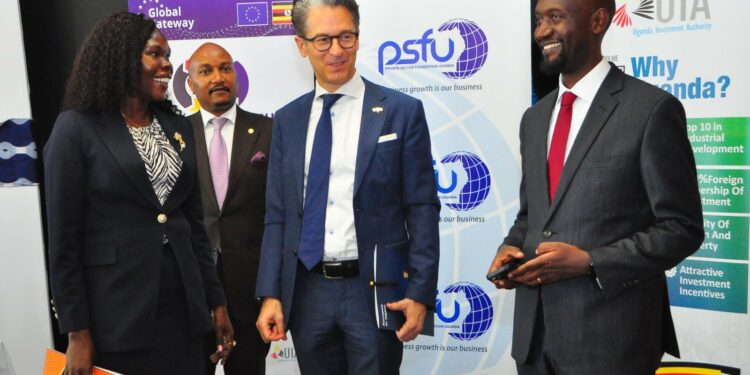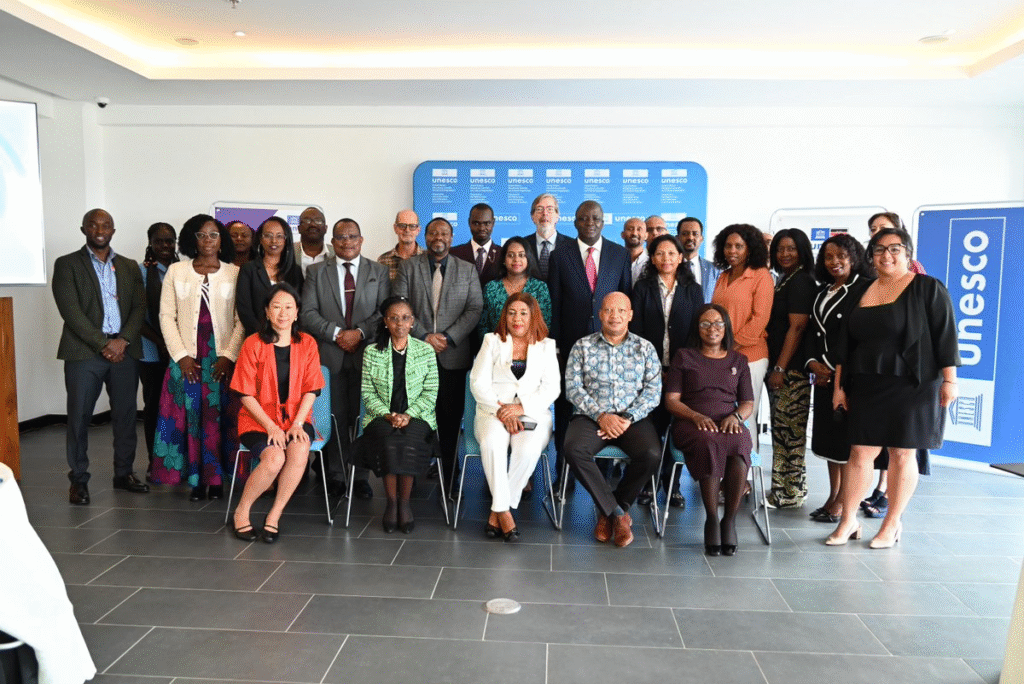Uganda-EU Business Forum Emphasizes Job Creation and Standards Compliance

The European Union (EU) reaffirms rigorous standards for imports from Uganda, prompting collaboration with local authorities and the private sector to meet market demands. Ahead of the 3rd Uganda-EU Business Forum, discussions focus on job creation, environmental initiatives, and boosting trade and investments. Uganda’s advantageous position in the EU market is emphasized, highlighting opportunities for mutually beneficial partnerships and economic growth.
In a significant development, the European Union (EU) has reaffirmed its insistence on rigorous standards for imports from Uganda and other nations, citing the paramount importance of ensuring public safety.
Amidst this commitment, the EU has declared its ongoing collaboration with Ugandan authorities and the private sector, emphasizing the shared responsibility to meet market demands.
Over the past decade, the EU has intensified standards, particularly focusing on fresh produce such as fruits, vegetables, and cut flowers, employing measures that include the blocking of consignments.
Responding to these stringent measures, the Ugandan government temporarily suspended the export of certain agricultural products to the EU until farmers, processors, and exporters met the stipulated requirements.
Ambassador Jan Sadek, Head of the EU Delegation in Uganda, underscored the non-negotiable nature of meeting the demands of the people. Additionally, the EU is poised to implement a policy prohibiting the import of coffee from Uganda produced in areas deforested after 2020, aligning with efforts to combat environmental degradation.
Sadek assured that the EU is working closely with local authorities to ensure Uganda meets the 2025 implementation deadline without disrupting the coffee industry.
This announcement precedes the eagerly anticipated 3rd Uganda-European Union Business Forum, scheduled for 5th to 7th March 2024 at Speke Resort Munyonyo in Kampala.
State Minister for Investment and Privatisation, Evelyn Anite Kajik, expressed Uganda’s awareness of the impending coffee ban and affirmed the president’s support for this environmental initiative.
She stressed that, for Uganda, preserving the environment is paramount, especially considering the EU market accounts for 65% of the country’s coffee exports.
The upcoming forum, featuring an exhibition at Speke Resort Munyonyo, aims to mobilize investments into Uganda while strengthening Ugandan exports to the EU market.
The bilateral trade between the two is currently valued at about 1.5 billion euros, with Uganda’s exports holding a slight edge over imports, marking a rare occurrence in international trade dynamics.
Ambassador Sadek highlighted the EU’s claim of a 45% share of foreign investments in Uganda and emphasized the need to continue promoting investments between the two entities, aligning with the forum’s focus on job creation.
The 2024 Uganda-European Union Business Forum, themed “Boosting trade and investments: What can Uganda gain from the Global Gateway?” emphasizes Uganda’s advantageous position, with products enjoying quota-free and tariff-free access to the EU, excluding arms.
The forum aims to boost trade and investments, focusing on key economic sectors such as agribusiness, minerals, infrastructure development (especially in energy and digital), and tourism, as outlined by the Uganda Investment Authority (UIA).
UIA Board Chairman, Morrison Rwakakamba, urged European investors to capitalize on lucrative opportunities in hospitality, pathology, and vegetable oil production.
Humphrey Nzeyi, the Chairperson of the Private Sector Foundation (PSFU), emphasized the importance of constructive dialogue and joint action to create an environment conducive to business growth and prosperity for both Ugandan and European companies.
His assertions were a clear indicator of a joint commitment to fostering an improved investment climate and stronger business partnerships between Uganda and the European Union.
Rooted 600 years ago, when Africa exchanged prized ivory, gold, and minerals for basic manufactured goods like glass and mirrors, this forum signifies a departure from the past.
Contrasting the historical narrative, Uganda now stands as an exporter, sending goods worth $800 million to the EU while importing $700 million. This shift in trade dynamics will be a focal point during the forum, aiming to deepen this trend and solidify Uganda’s position as a key player in the EU market.
As the Uganda-EU Business Forum unfolds, it represents not only a convergence of business interests but a testament to the dynamic evolution of trade relations between two continents, seeking mutual prosperity and innovation.







